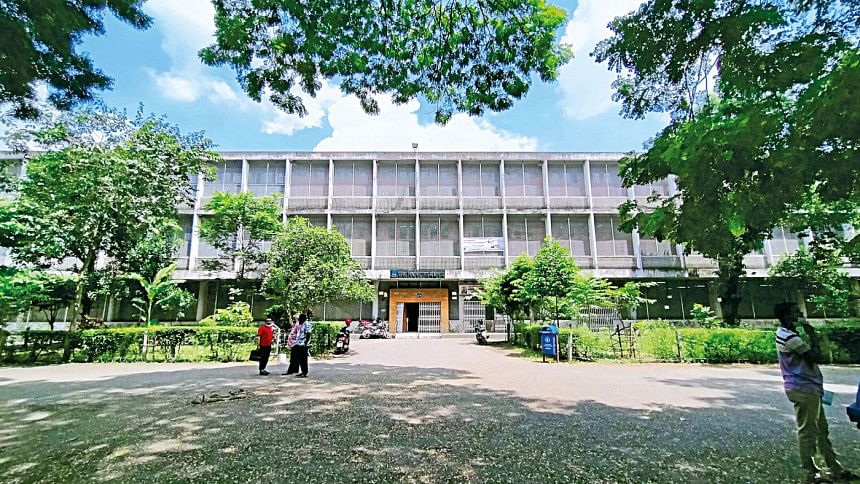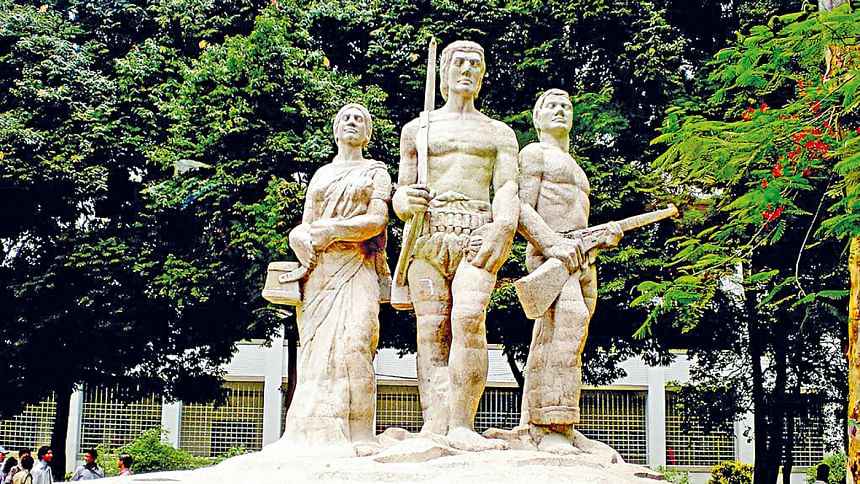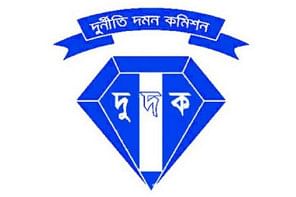A Season of Hope and Despair: Reminiscing My Dhaka University Days

I am one of the privileged few to have experienced Dhaka University—the nation's citadel of higher education le plus excellent—from both sides of the spectrum, first as a student and then as an academic. I entered Dhaka University as an undergraduate student in the Department of English in 1973 and graduated with a Bachelor's (with Honours) and a Master's degree in 1978. I returned to Dhaka University after completing my PhD in English literature from Flinders University, Australia, to take up the position of Assistant Professor of English in 1992. But an offer from Nanyang Technological University, Singapore, in 1993 cut short my teaching stint.
1973 was a time of both hope and despair. It was full of hope because we were a newly independent country. We had attained our sovereignty only in 1971 after a protracted colonial rule, first by the British and then by Pakistanis. After centuries of brute subjugation, we were now in full control of our national destiny; this created a feeling of euphoria and triumph. But it was also a time of despair because we had earned our independence at a high cost in human life, untold destruction of private and public property and the dignity of 200,000 biranganas. Besides, we were trapped in a postwar milieu of chaos, confusion and political ferment: guns rattled at street corners, hooliganism was rampant, political corruption and thuggery infiltrated every artery of social life and a large-scale famine loomed on the horizon.
It is in this state of affairs that I enrolled at Dhaka University. I was in the English Department—"the king of subjects," I would often whisper to myself. Yes, I knew that the language carried the taint of colonialism; it was an essential instrument for the exploitation and thingification of colonial subjects. But it was also the language of the world's best creative minds, from Chaucer and Shakespeare to Whitman, James Joyce and T.S. Eliot. The more I read these writers, the more I was convinced that English as a language was rich, elegant and resourceful and could not be faulted for its horrific abuse by the crafty, cold-blooded colonists. English opened my eyes to the glory of the world and the splendour of human history as I could now read any book from any time or society in English translation.
Soon I started making friends of all stripes and interests at the University. However, I had an inner circle of friends I treasured most. Some of them were from the department and others from Mohsin Hall, the residential hall where I lived during my entire study period. Adda with these friends became a pastime. I would often sit with them and chat about everything under the sun—from English and Bengali literature to film, theatre, music, food, religion, philosophy, politics and what have you.
Adda would take place between classes in the Department Seminar Room or the corridor, but we would walk to Sharif Mia's Canteen whenever we had an extended break. The University had two famous canteens on campus: Madhu's Canteen and Sharif Mia's Canteen. The two attracted very different kinds of patrons. Madhu's canteen was the hub of student leaders and their mobster buddies, and Sharif Mia's Canteen was the meeting place for the more intellectually and culturally inclined. Somehow, we all knew where we could find our friends.

When the adda ended, I would casually walk into the library and spend hours browsing through books. I would return to my residential hall in the evening and sit with my books again after dinner. I was under the spell of Francis Bacon's aphorism, "Reading maketh a full man; conference a ready man; and writing an exact man." I read all kinds of books, but the religious, philosophical and spiritual ones fascinated me the most. I spent days on end reading the Qur'an, the Bible, the Bhagavad Gita and the Upanishads; the poetry of Rumi, Hafiz, Blake, Wordsworth, Whitman, Hopkins, Tagore and Nazrul. Rumi, Emerson and Tagore emerged as my all-time favourites. Many of their ideas have remained a source of inspiration for me ever since.
One day I read the following verse in the Qur'an, "O believers! Stand firm for justice as witnesses for Allah even if it is against yourselves, your parents, or close relatives. Be they rich or poor, Allah is best to ensure their interests. So do not let your desires cause you to deviate from justice," and instantly fell under a spell. I realised how splendid Islam was as a religion. But I also wondered if Muslims were up to this sublime faith; if they could truthfully espouse its selfless, altruistic teachings, forsaking their mundane, give-and-take capitalist reading of the religion. I was equally mesmerised by Krishna's teachings on love, faith, duty and compassion in the Bhagavad Gita—"A man is made by his beliefs. As he believes, so he becomes"; "Set your heart upon your work but never its reward"; "We behold what we are, and we are what we behold"—but shared a similar cynicism about our Hindu brethren. All because of human frailty and the inability of mortals to comprehend the divine.
The more I read these spiritual works, the more I fathomed that the Ultimate Reality comprised both the perceptible and the imperceptible, visible and invisible. Money, success and power were not everything in life; morality and spirituality also mattered. Fulfilment lay not in hatred, fear, anger, arrogance or riches but love, fellowship, empathy, integrity and sacrifice. Knowing one's true purpose in life, like the way Krishna wants Arjuna to find his during the battle of Kurukshetra, was crucial, and by now, I had an inkling of what the purpose of my journey on this planet was.
If books were a source of hope and inspiration for me, so were my teachers in the department: Professors A.G. Stock, Serajul Islam Choudhury, Ahsanul Haq, Razia Khan Amin, Husniara Haq, K.M.A. Munim, Nizamul Haq, Niaz Zaman and others. They were living, walking examples of honesty, integrity and simplicity. They filled our hearts with the love and excitement of knowledge and learning and the joy of imagination and expression. They were dynamic, devoted and impartial in their dealings with us and never sought to limit us to their own learning. We were the growing plants that they tended with warmth and care so that we may make the world a better place in future. They didn't expect any hero-worshipping from us; all they wanted was that we should be able to fly into the sky with a little nudge. How lucky I was to find some of those icons of student days as colleagues when I entered the department as an academic in 1992.
The castle of hope I built around me was tested repeatedly by the violence on campus and outside. Some of them were so deadly that they broke through the walls of our interior lives and left us despondent for days: the seven killings in front of Mohsin Hall TV Room in 1974; the killing of Siraj Sikder and the brutal assassination of Bangabandhu with his family members in 1975; the execution of Colonel Taher in 1976 and many more. There was another incident that threw us into a whirlpool of sorrow: the death of the National Poet in 1976. I and some of my friends were present at his burial next to the University Mosque.
These incidents agitated us and filled our hearts with hopelessness, but we would soon get up, dust ourselves and return to our ways of hope and optimism. We were young and full of aspiration and readily believed in Dostoevsky's dictum, "To live without hope is to cease to live."
Mohammad A. Quayum is an academic, writer, critic, editor and translator.

 For all latest news, follow The Daily Star's Google News channel.
For all latest news, follow The Daily Star's Google News channel. 



Comments